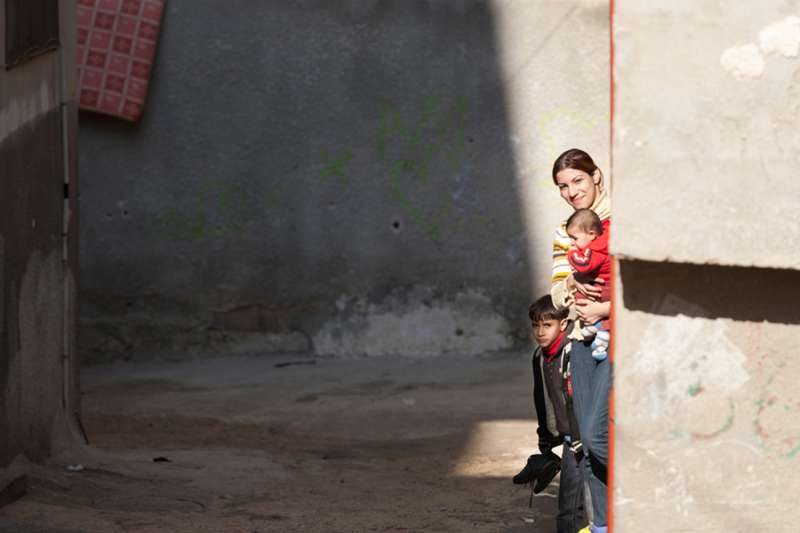The U.S. State Department announced Monday it will close the Palestinian Liberation Organization office in Washington because it says Palestine has failed to take “steps to advance the start of direct and meaningful negotiations with Israel.”
The Palestinian Liberation Organization, or PLO, is recognized by the United Nations as “the representative of the Palestinian people” and has diplomatic relationship with over 100 states, including the Holy See.
“I am reminded of the teachings of the great popes of our time who have pleaded that the voice of the Palestinian people be heard,” Father David Neuhaus, a Jerusalem-based priest, told CNA.
In 1948, Pope Pius XII wrote in an encyclical on Palestine, “Even before the armed conflict began … We manifested our lifelong solicitude for peace in Palestine, and, condemning any recourse to violence, We declared that peace could only be realized in truth and justice.”
The Holy See has been in dialogue with both Palestine and Israel for decades. Pope John Paul II met with then-PLO chairman Yasser Arafat in 1987.
The Vatican signed an agreement with the State of Palestine in 2015, which recognized the importance of religious freedom in Palestine and backed a two-state solution for the Israeli-Palestinian conflict. A new Palestinian embassy to the Holy See opened in Rome in 2017.
“Without hearing that voice, the dream of justice and peace for Israel, for Palestine and for the Middle East will remain impossible. Closing the Embassy is an attempt to silence that voice,” Neuhaus continued.
Father Neuhaus sees the PLO office in Washington closing as consistent with other steps the Trump administration has taken with relation to Palestine, including the discontinuation of funding for East Jerusalem hospitals and for the UNRWA, the United Nations agency for Palestinian refugees.
Reuters reported Sept. 8 that President Donald Trump redirected $25 million in aid designated for Palestinians in East Jerusalem hospitals to other “high-priority projects.” Dan Shapiro, a former U.S. Ambassador to Israel, said that cutting off aid to Palestinian hospitals is “indefensibly cruel.”
Earlier this year, Catholic Relief Services and Jesuit Refugee Services signed onto a letter asking the White House to reconsider withholding funds from the United Nations Relief and Works Agency for Palestine Refugees (UNRWA). The Trump administration permanently cut its funding on Aug. 31.
The State Department defended its decision to close the PLO mission in a statement on Sept. 10, “PLO leadership has condemned a U.S. peace plan they have not yet seen and refused to engage with the U.S. government with respect to peace efforts and otherwise.”
The Trump administration’s decision is closely linked to Palestinian attempts to prompt an investigation of Israel by the International Criminal Court (ICC) earlier this year.
The International Criminal Court, based in the Hague, Netherlands, has jurisdiction to prosecute individuals for war crimes, genocide, and other crimes against humanity.
National Security Advisor John Bolton announced the PLO office closure as a part of a Sept. 10 speech that also criticized the ICC. The speech came at a Federalist Society event entitled, “Protecting American Constitutionalism and Sovereignty from International Threats.”
“Since its 2002 inception, the Court has spent over $1.5 billion dollars, while attaining only eight convictions. This dismal record is hardly a deterrent to dictators and despots determined to commit horrific atrocities,” Bolton said on Monday.
Bolton called the ICC an “unprecedented effort to vest power in a supranational body without the consent of either nation states or the individuals over which it purports to exert jurisdiction.”
“As Americans we understand that consent of the governed is a necessary prerequisite to true legitimacy and we reject such a flagrant violation of our national sovereignty,” he continued.
In 2002, Bolton, then the Under Secretary of State for Arms Control and International Security, orchestrated several bilateral agreements aimed at exempting the U.S. from the multilateral treaty that had created the International Criminal Court.
Pope Francis met in Sept. 2017 with the former president of the the International Criminal Court, Judge Silvia Fernández de Gurmendi, who encouraged the Holy See to consider becoming a party to the ICC treaty, the Rome Statute.
The judge and the pope also discussed the court’s investigations and cases for crimes such as the recruitment of child soldiers, sexual violence in conflict, attacks on civilians, and the destruction of religious property.
In Christmas Day, 2017, Pope Francis encouraged prayer for all people in the Middle East.
“We see Jesus in the children of the Middle East who continue to suffer because of growing tensions between Israelis and Palestinians,” the pope said.

